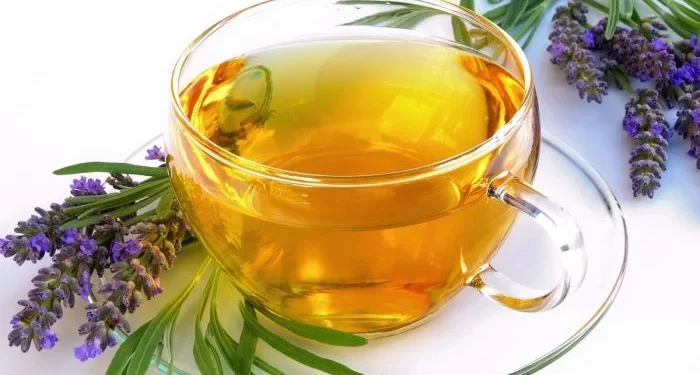Lavender Tea: Benefits, Recipe & Side Effects. Lavender plants are loved for their amazing variety of nourishing benefits. Lavender tea can really enhance the relaxation you get from a hard day’s work. This may include muscle spasms, healthy digestion and obviously, sleep. In addition to this, lavender is also said to reduce inflammation and balance mood with ease. The skin is an excellent beneficiary as well- it’s been known to alleviate chronic pain too!
Content:
What is Lavender Tea?
Lavender tea is a drink made from the buds of a flower, a small purple bundle found in the genus Lavandula. It’s native to the land surrounding Mediterranean Sea and Southern Europe. It comprises more than 30 species, dozens of subspecies and plenty of hybrids and cultivars, including linalool, an effective analgesic. The essential nutrients can have effects on human health, such as having an anti-inflammatory effect on certain diseases such as rhinitis and diabetes.
Lavender Tea Benefits
If you’re looking for an easy way to help with insomnia, anxiety, gastrointestinal upset, skin irritation, and headaches, lavender tea may provide relief. It’s certainly a possibility either way!
May Reduce Stress Levels
One of the things that makes lavender tea perfect for people who suffer from chronic stress and anxiety is that it’s full of ingredients that can reduce the excess hormones in your body. It stimulates the release of neurotransmitters that balance out your mental and physical feelings and can give your mind a boost by preventing mental exhaustion. Lavender tea may also have an analgesic effect, which means there will be less pain and sensitivity in the areas you apply it to.
The natural soothing qualities of lavender tea make it ideal for people suffering from chronic stress and anxiety while its active components can stimulate the release of neurotransmitters which offset excess hormones in your body or prevent mental exhaustion when applied.
May Improve Skin Condition
Antioxidants and volatile compounds found in lavender might lower the risk of chronic diseases, premature signs of aging, wrinkles, and inflammation. These benefits can be attributed to the neutralizing effects of these compounds on free radicals. Lavender tea has been shown to improve skin texture.
May Reduce Inflammation
Lavender tea has a long list of potential benefits, including offering support for headaches, fevers, skin irritation, osteoarthritis pain, and joint disorders. The active compounds in this tea may effectively prevent the body’s natural inflammatory response.
May Eliminate Sleep Disorders
Some people prefer drinking this tea as a pre-bedtime beverage because it has calming properties. If you’re not getting a good night’s sleep, tea like lavender may help you drift into slumber.
Lavender Tea Recipe
Making lavender tea at home is a simple process, and it can be done with only fresh lavender buds and water. Feel free to experiment with different flavors by blending in sugar, honey, or other types of tea. Let us take a look at the recipe below:
Side Effects of Lavender Tea
With all the potential side effects, it’s best to not add lavender tea to your daily or weekly health regimen. Just be wary of any possible interactions or situations you may experience while taking this tea. If you think you may have been harmed by this tea, speak to your doctor before adding it to your daily or weekly health routine.
Listed below are some of the side effects of lavender that you should be aware of: Skin irritation, nausea, vomiting when consumed in excess, headache, constipation and appetite change. Some side effects may be quite serious if you drink too much lavender at one time or it has harmful toxins.
When pregnant, using this tea is not recommended as it can stimulate menstruation which can lead to miscarriage or other complications in pregnant women. If you take a blood thinner medicine or any other drug with blood thinners as a side effect, it could be dangerous, particularly before undergoing surgery.












